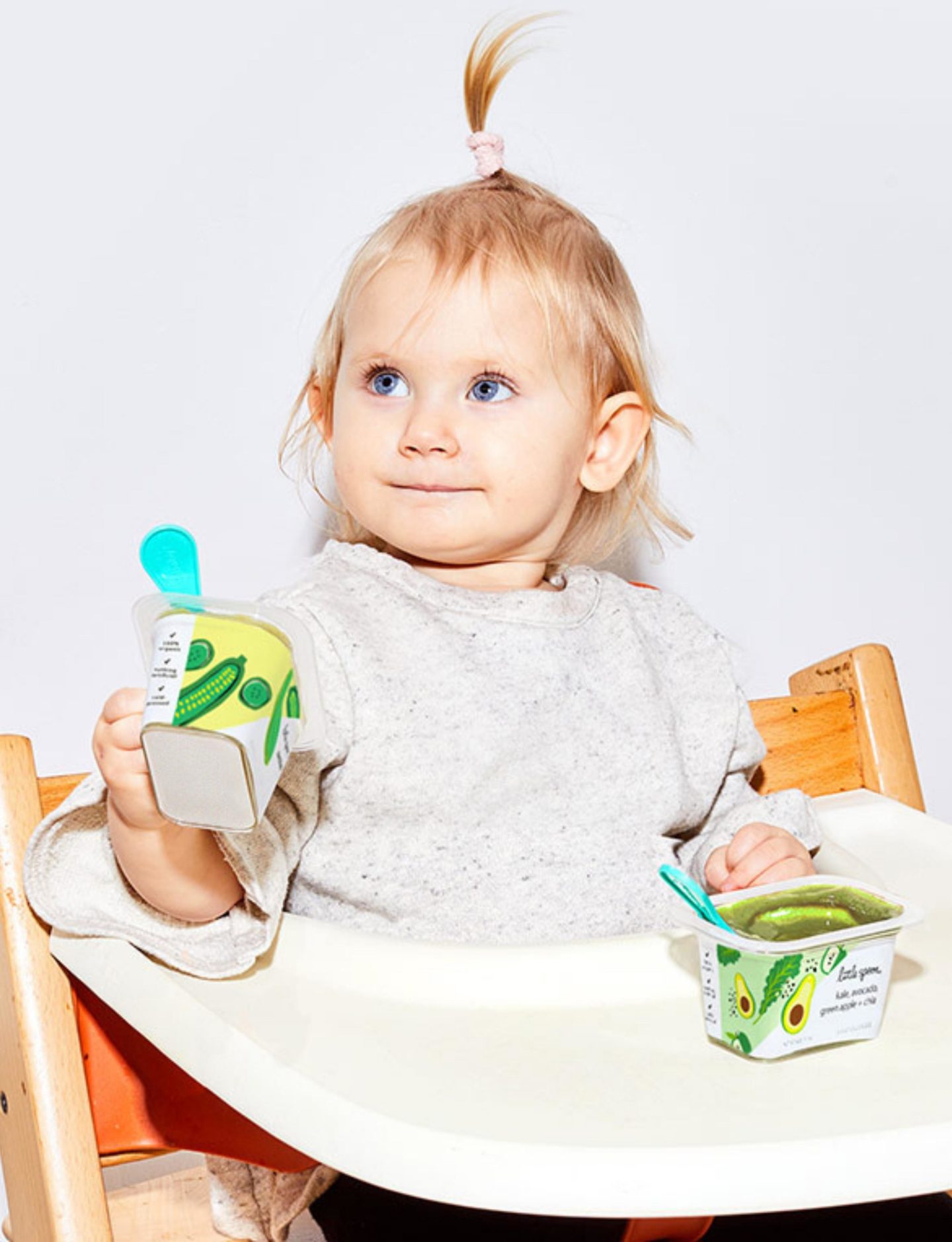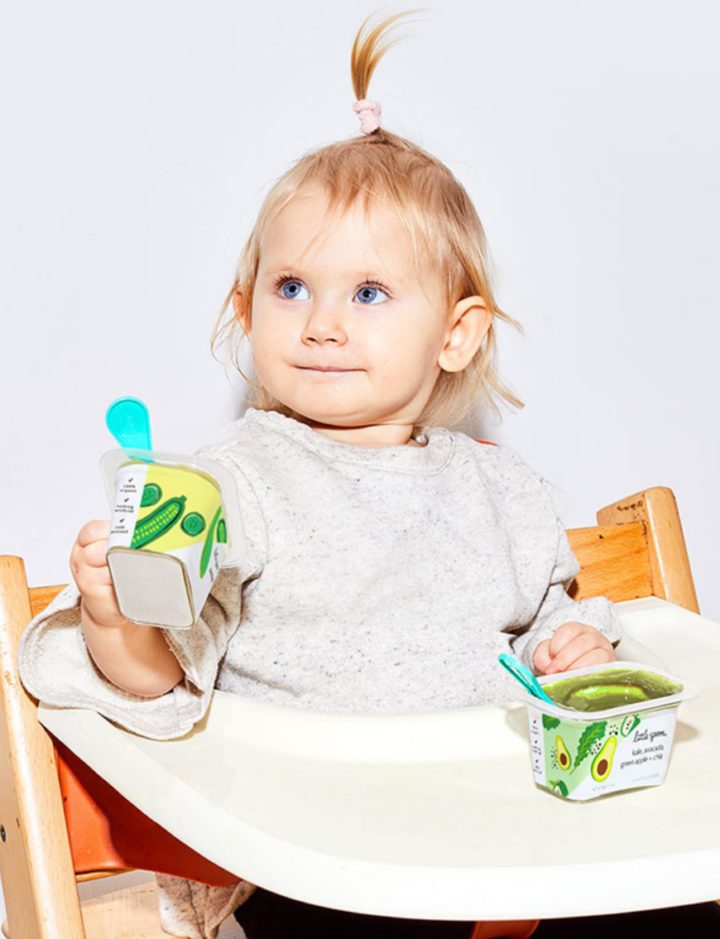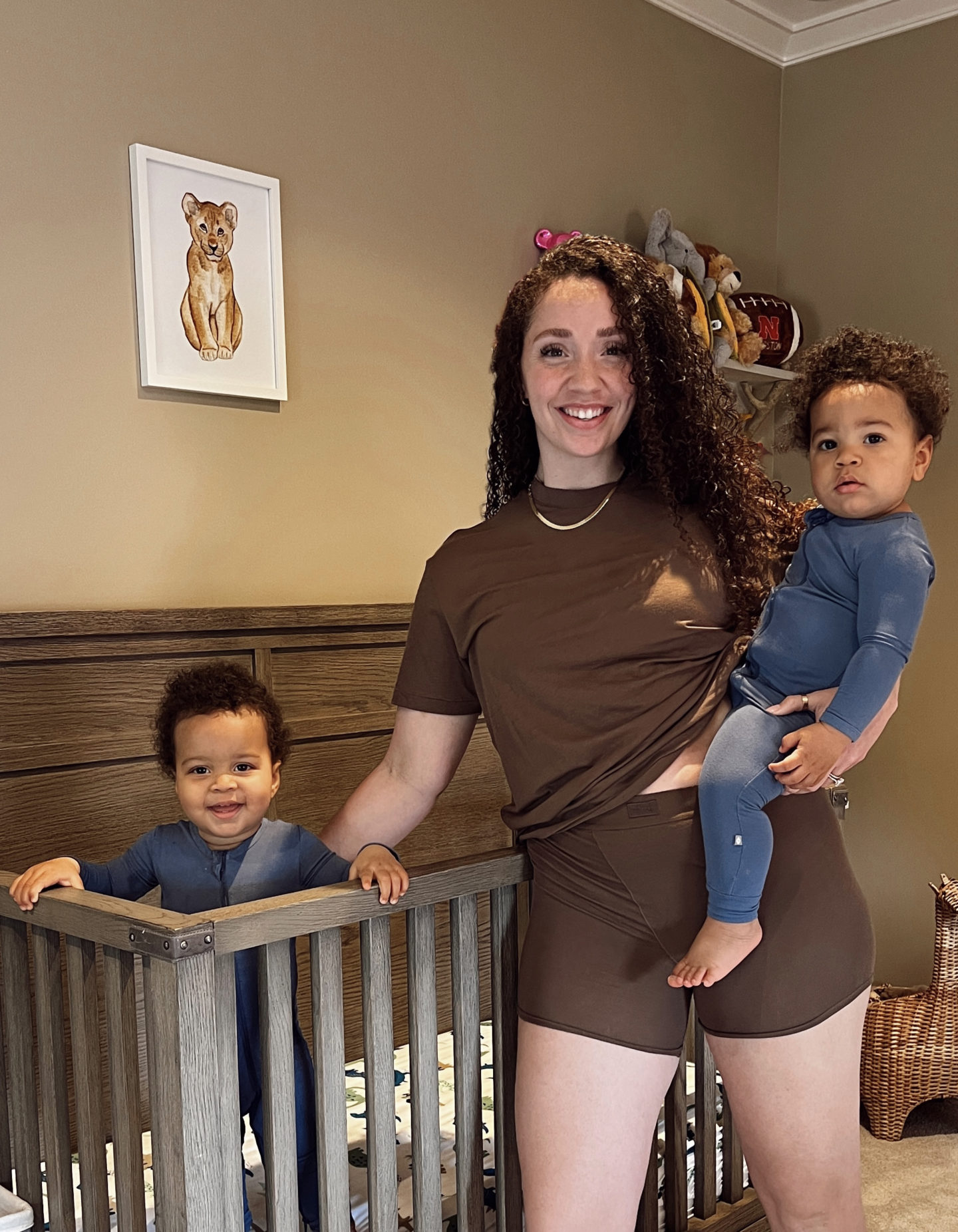If you’re in the process of introducing your babe to solids, you know it’s a lot more than just those adorable Instagram videos of silly baby faces after your little ones’ first tastes. There is confusion. There is messiness. There is frustration. There are tears. But there’s also a lot of fun, discovery, dietary progress, and most importantly, healthy growth. Our friends at Little Spoon take the guesswork out of starting solids to help make mealtime easier, which means they are de facto making parents’ lives easier. Here, they share 9 things you didn’t know about starting solids.
Rice cereal is not a must.
Many parents start with rice cereal, but this step actually isn’t necessary. Why? Rice cereal and baby food that contains rice (especially brown rice) can be high in inorganic and organic arsenic (!) Instead, start with fresh single-ingredient purees or single whole foods. Little Spoon uses other grains like quinoa, buckwheat, farro, and more instead of rice in their Babyblends line.
Picky eating is preventable.
Don’t let them knock it ‘til they try it! Exposure to a wide range of ingredients helps set your babe up for a lifetime of health and helps them develop healthy eating habits from day one. Introducing your baby to a wide variety of textures and flavors early on can help prevent picky eating, as babies are more accepting and curious in the starting solids stage. The easiest way to do this—eat the rainbow!
Bless this mess.
Resist the urge to constantly wipe down that adorable punim during mealtime and let your baby get messy! Exposure to new foods, even if that means playing versus eating, is an important part of the starting solids process.
Babies can self-feed.
Many babies will be capable of self-feeding (to some extent) at 6 or 7 months of age. Start by holding the spoon a few inches away from your baby’s face and see if they will grab for it.
Food is an addition to breast milk or formula.
In the first few months of eating solids, food will act as an addition to breast milk or formula. So much of this early mealtime is about exposure and getting comfortable with different flavors and textures, so if half of the meal ends up on the floor, that’s ok. When introducing solids, your babe should still be getting about 24-32 ounces of formula or breast milk a day. At this point, purees are more like a supplement and you can feed around 3-4 tablespoons 1-2 times a day.
If first, you don’t succeed…
It can take up to 15 tries for a baby to accept a new food so don’t get discouraged if your babe doesn’t LOVE avocado right away. Repeat exposure is important and serving new foods with familiar foods helps.
Babies can eat anything you eat…except honey.
Your little one can basically eat anything you can eat, as long as it’s served in an age-appropriate manner. One big no-no, however: babies under 1 should not eat honey as there is a risk for botulism.
Spices are a-ok!
The first 18 months of life are known as the “flavor window” where you can introduce different flavors and textures. And yes, this means different spices along with the salty and sweet.
You can introduce allergens.
Ongoing research shows that introducing allergens including goodies like eggs, fish, and tree nights right after starting solids reduces the risk of developing a food allergy. Many professionals suggest a 3-day rule for introducing allergens. Little Spoon always recommends trying new ingredients when your pediatrician’s office is open, just in case you have questions or concerns you need to be addressed.
This article was written in partnership with Little Spoon.




